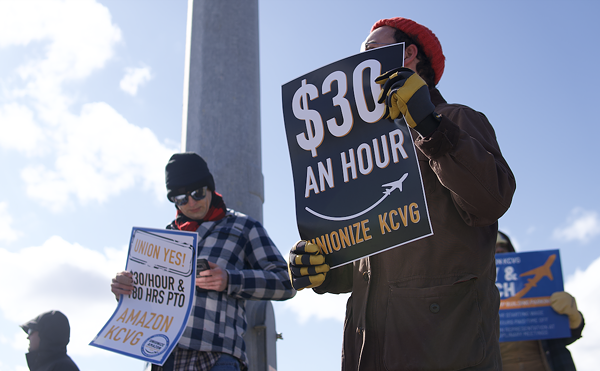|
Going back in time really isn't as difficult as the scientists would have us believe. Those of us looking ahead to the NFL draft see no need to build a space ship that travels faster than the speed of light, since we go backwards in time simply by following the Bengals.
The local football team seems to have reached the speed of light on Jan. 8, 2006, when Pittsburgh Steelers nose tackle Kimo Von Oelhoffen, a former Bengal, rolled into Bengals quarterback Carson Palmer four and a half minutes into the stripes' first playoff game in 15 years. Perennial losers, the Bengals improved steadily in Marvin Lewis' first three years to finally win the AFC North and a playoff berth.
The Bengals lost that game and have regressed ever since. Palmer came back fine the next year, but the Bengals dropped to 8-8 in 2006 and collapsed last year to finish 7-9.
So the Bengals draft off a losing season for the first time since 2002, desperately needing defensive line help as always, and now the star offensive producer is begging to be traded. Once beloved by Bengals fans despite his cheesy flaws, Chad Johnson enters the hall of chumps where Corey Dillon and Carl Pickens earned their much-deserved scorn for bailing out on the football team. We're back in 2001.
The Bengals should have built a solid, annual playoff contender in Lewis' five years, but Palmer is the only piece of lasting high value added during Lewis' stint.
Meanwhile, age and infirmity take down the offensive line, and the wide receiving core is coming apart, making even Palmer less valuable.
Lewis built, perhaps, the most feared defense in NFL history as the Baltimore Raven's defensive coordinator in 2000, but the Bengals five years after his arrival remain one of the league's most porous defensive teams. Top defensive talents like Justin Smith, David Pollack and Odell Thurman are gone — Smith to a free agent contract with San Francisco, Pollack to a neck injury and Thurman to a league suspension.
Outside of Palmer's quarterbacking and Rudi Johnson's work lugging the ball, not one unit of the Bengals is solid, let alone a plus, if Chad Johnson sits out the season. The Bengals aren't merely going nowhere. They're going backwards.
It's thus easy to understand Johnson's frustration. If he's never been a big hero in this corner, he's still among the least of the Bengals' problems despite his whiny petulance. But he's not getting out of here as easily as he wants.
Johnson can sit out the whole year if he dares and, if he doesn't mind fines of $14,000 per day, to say nothing of damage to his Q factor, he'll lose a year in his athletic prime and diminished endorsement opportunities. It makes minimal difference concerning the Bengals, who aren't a playoff team without him and only nominally a contender with him.
In other words, Johnson has called a game of chicken in which he stands to lose a lot more than the Bengals. We're used to his tone-deaf media stunts by now and wish he would cut it out, but he just keeps adding bricks to the wall built of cornpone touchdown celebrations and self-destructive baiting of opposing defensive backs.
The Bengals and Johnson are stuck with each other, even if another NFL team comes calling with a package of second- and third-round draft picks. Not even equal value can spring a trade because of the salary cap situation.
The Bengals have paid Johnson bonuses of $21 million for contracts signed in 2003 and 2006, figuring they could spread the bonuses into their cap through 2011. By trading or releasing Johnson now, they would have to count the remaining $8.03 million against their cap this year.
If we know the Bengals, we know they would welcome nothing more than a good reason to under-spend their salary cap by $8.03 million. But they don't have that choice. Depending on whose account you believe, the Bengals already were right around $8 million under the salary cap as of a month ago, and that's before signing draft picks. So they're not trading Johnson even if someone offers equal value in return.
How unfortunate for Johnson that he accepted $21 million in bonus money and now, because of it, is imprisoned in Cincinnati.
When Chad says he has to do what's right for Chad, it's nothing more than the usual nonsense, because Chad can't do anything about it. When all is said and done, he'll show up, play and get paid because it's his best decision.
We should all suffer such awful problems. People all over America are losing their houses because they're down a few thousand bucks, then they turn on the sports news and listen to this kid sulk about playing for the Bengals after they've put $30 million in his pocket over the last seven years.
If the Bengals are stuck with an unhappy player, they're stuck with an unhappy player. Johnson won't be the only unhappy one. The coming season doesn't figure to be happy for anyone. And if Johnson is just too irritating, football players will deal with it.
It's easy to say the Bengals should trade Johnson, as if the salary cap hit is no big deal. It's easy for T.J. Houshmandzedah to say the Bengals should trade Johnson. Houshmandzedah is a free agent after 2008 and is probably walking anyway.
The rest of us will bide our time with the Bengals and Johnson, hoping the former can work a miracle and the latter can make peace with his situation. It's asking quite a lot.
The Bengals will draft ninth this year with little chance of addressing more than a fraction of their needs. By most educated guesses, they'll wind up with Southern California defensive tackle Sedric Ellis — but it's not even a start. The Bengals have gone too far backwards for that.
CONTACT BILL PETERSON: [email protected]





